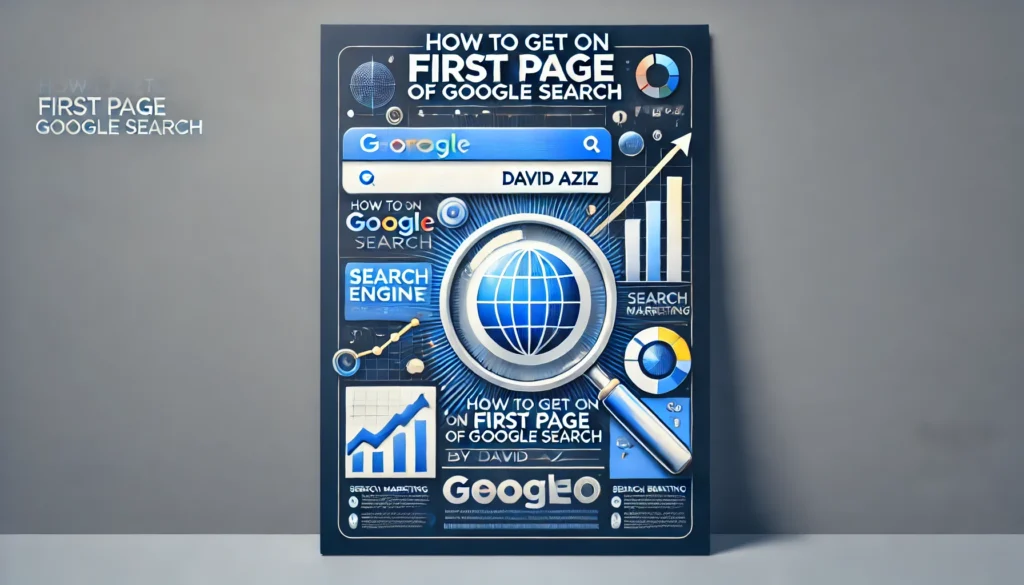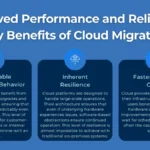In today’s digital world, having a prominent online presence is essential for businesses and individuals alike. One of the most coveted spots is the How To Get on First Page of Google Search David Aziz search results. But how do you achieve this? How can you ensure that your website, blog, or content appears on that first page, especially when competition is fierce? In this article, we will explore the strategies and techniques you can implement to improve your chances of ranking on Google’s first page. We will also provide insights into how David Aziz, an SEO expert, approaches the process of SEO optimization to secure top rankings.
The Importance of Ranking on the First Page of Google
Before diving into the “How To Get on First Page of Google Search David Aziz“ results, let’s discuss why it’s so important.
- Increased Visibility: Studies show that over 90% of clicks come from the first page of search results. The further down the rankings you go, the fewer clicks you’ll receive.
- Higher Traffic: Appearing on the first page means more organic traffic. With more people visiting your site, the chances of converting them into customers or readers increase.
- Trust and Credibility: Users tend to trust websites that rank higher on Google because they perceive them as more authoritative and credible.
- Better ROI: Organic traffic is free, meaning that ranking on the first page yields a higher return on investment (ROI) compared to paid ads.
With these reasons in mind, let’s now explore the steps you can take to make it onto the coveted How To Get on First Page of Google Search David Aziz.
Step-by-Step Guide on How To Get on First Page of Google Search David Aziz
David Aziz, a renowned SEO consultant, emphasizes the importance of a holistic and strategic approach to SEO. His method involves various techniques, from keyword research to on-page and off-page SEO. Here’s a breakdown of the key strategies to use:
1. Conduct Comprehensive Keyword Research
The foundation of any successful SEO strategy lies in keyword research. To rank on the first page of Google, you need to target the right keywords that are relevant to your content and industry. These are the terms people are typing into the search bar when they’re looking for information, products, or services.
- Use Keyword Research Tools: Tools like Google Keyword Planner, Ahrefs, and SEMrush can help you discover high-volume and low-competition keywords.
- Focus on Long-Tail Keywords: These are more specific, less competitive keywords that have a higher chance of ranking. For example, instead of targeting the broad keyword “SEO,” you could target “How To Get on First Page of Google Search David Aziz” to target a niche audience.
- Competitor Analysis: Analyze your competitors’ top-ranking keywords to find gaps in your content or opportunities to improve your own rankings.
Keyword Integration Tips
Once you’ve identified your target keywords, integrate them naturally into your content. Ensure that they appear in:
- Title tags
- Meta descriptions
- Headers (H1, H2, etc.)
- Alt text for images
- Body content
Example: If your goal is to rank for the phrase “How To Get on First Page of Google Search David Aziz,” make sure it appears strategically in your content without overstuffing.
2. Optimize Your On-Page SEO
On-page SEO refers to the strategies and elements you control directly on your website. This includes optimizing various aspects of your site to ensure it aligns with Google’s ranking criteria.
A. Title Tags and Meta Descriptions
Title tags and meta descriptions are two key factors that influence click-through rates. Craft compelling titles and descriptions that include your target keyword. For example:
- Title: “How To Get on First Page of Google Search David Aziz: Proven Tips by David Aziz”
- Meta Description: “Learn How To Get on First Page of Google Search David Aziz with expert advice from David Aziz. Follow these steps to boost your SEO ranking and increase organic traffic.”
B. Content Quality and Structure
Google values high-quality, informative, and well-structured content. Aim to write content that provides value to your readers. Here’s what you can do:
- Focus on User Intent: Understand what the searcher is looking for and tailor your content accordingly.
- Use Engaging and Clear Language: Write in a way that is easy to understand and keeps the reader engaged.
- Break Up Content with Headings and Subheadings: Use headings (H1, H2, H3) to break your content into digestible sections.
- Include Multimedia: Add images, videos, and infographics to enhance your content and make it more engaging.
C. Improve Page Speed and Mobile Responsiveness
Google gives preference to websites that load quickly and are mobile-friendly. A slow website can hurt your rankings and user experience. Optimize your images, use a content delivery network (CDN), and test your website’s speed regularly using tools like Google PageSpeed Insights.
3. Focus on Off-Page SEO
Off-page SEO refers to actions taken outside of your website to improve its ranking on Google. This primarily involves building backlinks, which are links from other websites that direct traffic to yours. Google sees backlinks as votes of confidence in your content.
A. Build High-Quality Backlinks
Quality backlinks are essential for ranking higher on Google. Here are some ways to acquire them:
- Guest Blogging: Write guest posts for authoritative websites in your niche and include backlinks to your own site.
- Content Promotion: Promote your content through social media, email outreach, and influencer marketing to encourage others to link back to your content.
- Broken Link Building: Find broken links on other websites and suggest your own content as a replacement.
B. Social Media Signals
While social media does not directly affect SEO rankings, it can increase visibility and traffic to your website, which indirectly benefits SEO. Share your content regularly on social platforms and encourage users to engage with it.
C. Online Reviews and Mentions
Positive online reviews and brand mentions signal trustworthiness to Google. Encourage satisfied customers to leave reviews on platforms like Google My Business, Yelp, and Trustpilot.
4. Leverage Technical SEO
Technical SEO is crucial for ensuring that Google can crawl, index, and understand your website. Some important elements of technical SEO include:
A. XML Sitemaps
Ensure that your website has an updated XML sitemap that helps Google’s crawlers index your pages efficiently.
B. Schema Markup
Implementing schema markup helps Google understand your content better. This can result in rich snippets that make your listing more attractive and visible in search results.
C. Fix Crawl Errors
Use tools like Google Search Console to identify and fix any crawl errors that may hinder Google from indexing your pages properly.
5. Create Fresh and Consistent Content
Content is king in the world of SEO, and the more high-quality content you produce, the higher your chances of ranking on the first page of Google. Here’s how you can do this effectively:
- Regularly Update Your Content: Google favors fresh content. Regularly update your blog posts, pages, and other content to keep it relevant.
- Write Comprehensive Guides: Create in-depth content that answers all the questions related to a specific topic. Google tends to rank comprehensive guides higher than shorter, less detailed content.
- Content Clusters: Group related blog posts and pages together into clusters, with a pillar page linking to the more specific pieces of content. This enhances the relevance and authority of your site.
Conclusion: How To Get on First Page of Google Search David Aziz
Achieving a spot on How To Get on First Page of Google Search David Aziz is not an easy feat, but it is possible with the right strategies. By following the steps outlined above, including thorough keyword research, on-page and off-page optimization, technical SEO, and producing high-quality, fresh content, you can improve your website’s chances of ranking high on Google.
David Aziz’s approach to SEO emphasizes a comprehensive and consistent strategy that involves understanding user intent, optimizing technical aspects, and building backlinks. By continuously implementing these SEO best practices, you will not only How To Get on First Page of Google Search David Aziz but also maintain a strong position in the long run.
To sum up:
- Conduct thorough keyword research.
- Optimize your on-page SEO.
- Focus on building high-quality backlinks and social signals.
- Regularly produce fresh, valuable content.
- Optimize your site for speed, mobile, and technical SEO.
If you’re committed to improving your search engine rankings, start implementing these strategies today and watch as your site climbs up the search results toward the coveted first page.
Read More: The Ultimate Guide to Netwyman Blogs: Unlocking Their Potential







